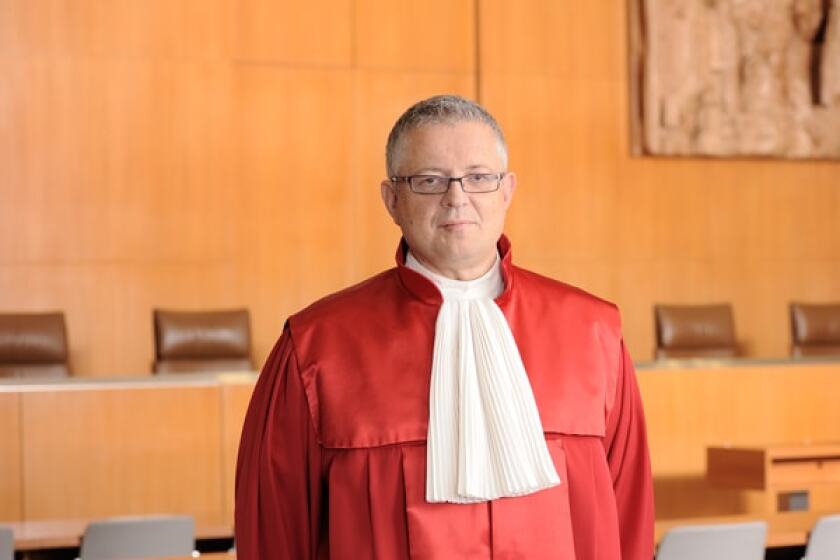The case holding up the Unified Patent Court will be decided in the first quarter of 2020, according to the judge at the German Federal Constitutional Court who is in charge of the matter.
Speaking exclusively to Managing IP, Justice Peter Huber said it was his intention to issue a decision on the complaint made against the legislation enabling Germany to ratify the UPC Agreement (UPCA) early next year.
He added that his timeframe will depend, however, on the time it takes for him and other judges at the constitutional court to deliberate on and amend the judgment.
“It is quite a detailed process that we follow because we have to look at every detail of how we formulate and word the [ruling],” he said. “But it is likely that we will get along with it.”
Responding to rumours that the court has been waiting for developments on Brexit before it issues its decision on the UPCA complaint, the justice of the Second Senate said the UK’s decision to leave the EU was of no concern to him.
“That [suggestion] is bullshit,” he said. “Personally I'm sad that the British have decided to leave the EU, but we are a court that responds to the constitution and the law, and Brexit is of no concern to us.”
He added that the case, which was on the court’s list of matters to be decided in 2018 and is on the list for 2019, has been delayed because there are other important cases that have to be resolved first.
“I don't want to delay [the decision] but there are some other cases at hand that also have to be dealt with,” he said.
“I've dealt with big issues before such as the European stability mechanism and never had a community like the IP community that has sent me a bunch of letters asking me to hurry up and try to put pressure on the courts.
“But we are the top court of Germany and not here to be put under pressure.”
German ratification is the last legal barrier to the establishment of the UPC and unitary patent, which together are designed to form a new patent system for some EU member states.
For the UPCA to come into effect, France, Germany and the UK – the three EU states with the largest number of European patents – and 10 other member states have to ratify the legislation.
The UK, one of the last holdouts, ratified the UPCA in April 2018. It is uncertain whether the UPC will be able to start in its current form if the UK has left the EU before the UPCA comes into force.
More analysis to follow.
Image © Bundesverfassungsgericht │ lorenz.fotodesign, Karlsruhe.











